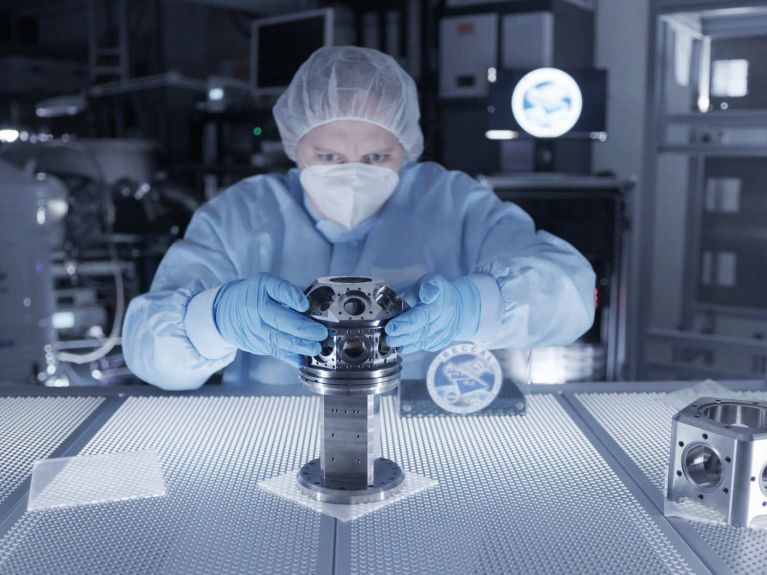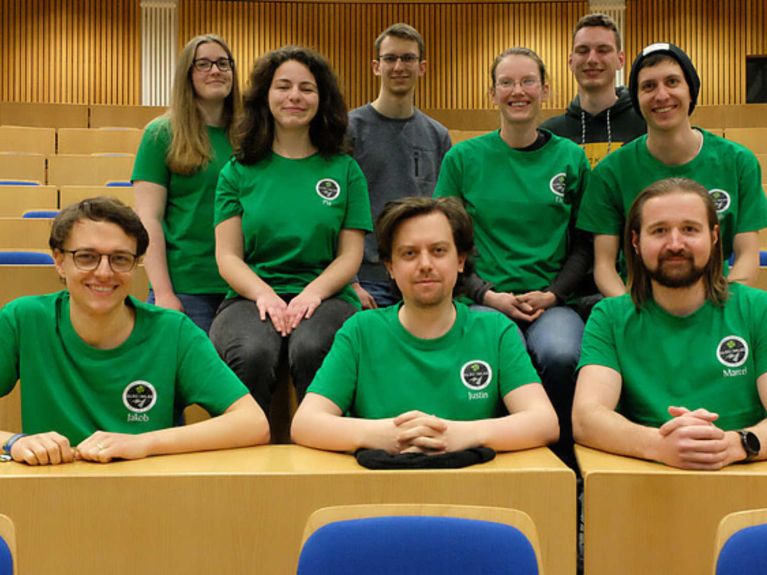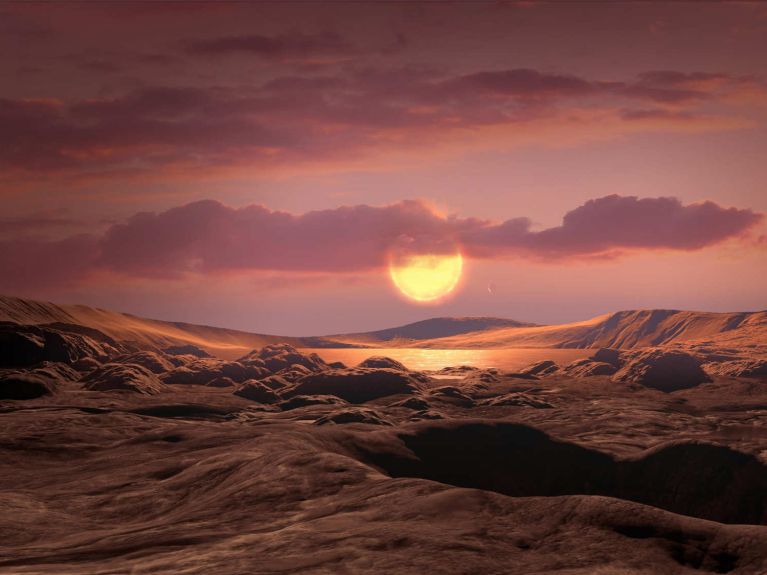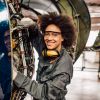Research in space
Scientists in Germany are working on fascinating international space projects. We’d like to present three projects.

Quantum technologies for space
Coming into play where traditional technologies meet their limits, quantum technologies allow completely new applications and previously impossible achievements in fields such as sensors and simulations, as well as in communication networks and computers. Dr Lisa Wörner from the German Aerospace Center (DLR) works with colleagues from NASA to study ultra cold and condensated atoms on Earth and in space. Through her work, she is advancing research and development into future quantum sensors. These sensors are so sensitive and precise that they can detect the magnetic field of an atom or the tiniest subterranean gravitational fluctuations.
Searching for life in the universe
Exoplanets are planets outside our solar system, and “Wolf 1069 b” is the name of one which has recently been discovered, and it has some fascinating properties. Temperatures could prevail there which could allow the existence of liquid water: and therefore, life. The planet also has a mass which is similar to Earth’s and could possess an atmosphere. Wolf 1069 b was found by Dr Diana Kossakowski and her team at the Max Planck Institute for Astronomy. As part of the Carmenes Project, the team has developed their own instrument to search for habitable worlds. They use the device at the Calar Alto observatory in Spain.

Cultivating plants in space
It will take over six months to get to Mars. While the Red Planet is still too far away to be investigated in more detail, that goal is coming within reach. In future, manned flights to Mars and other distant planets could take place. But what could astronauts eat on a journey of that distance? The recently developed “Four-Leaf Clover” experiment is investigating plants which might be suited to growing in space during a long-term mission. Ten students at Leibniz University Hannover and Leibniz Institute for Astrophysics Potsdam came up with the idea. They won the DLR’s “High Flyers 2 competition and got to send their experiment to the International Space Station in March 2023.


